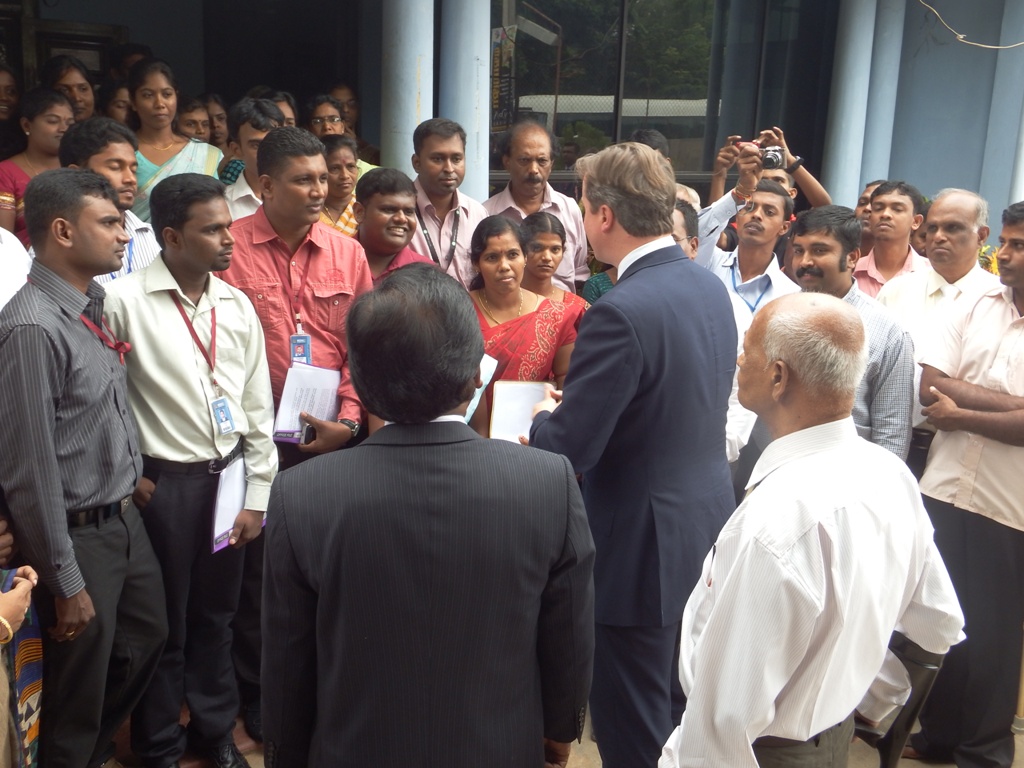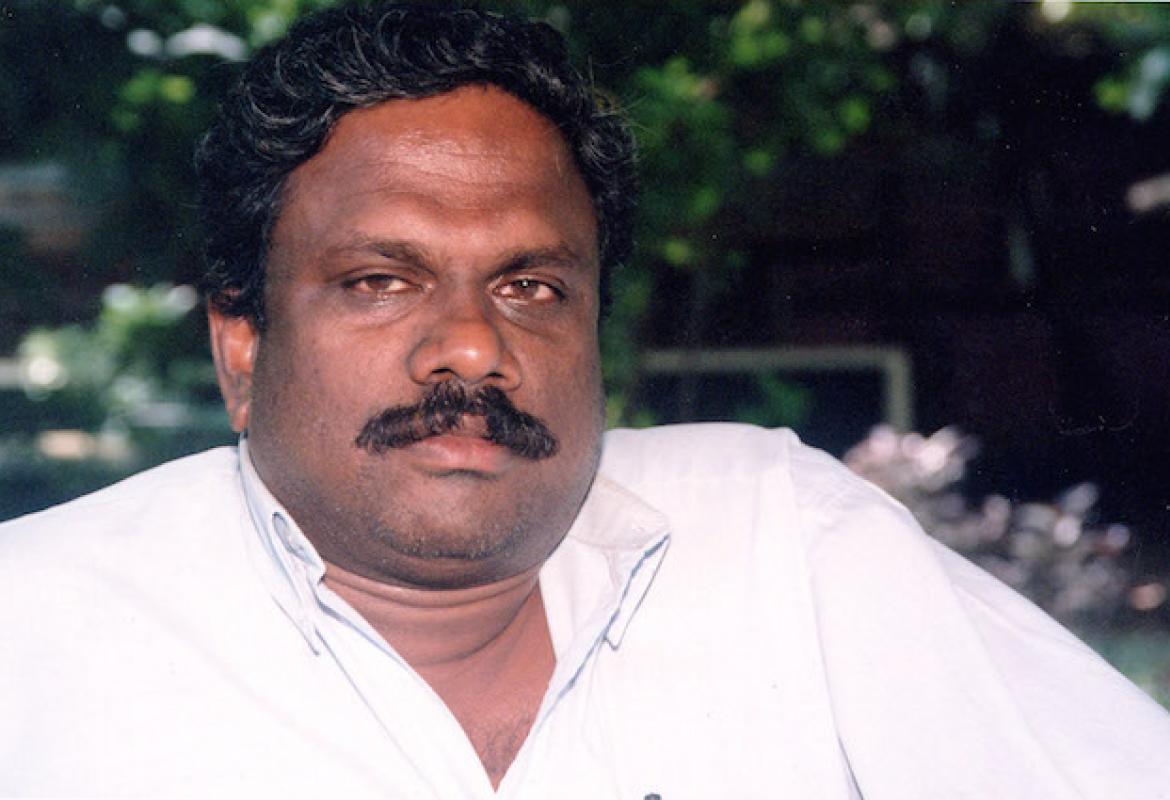Last updated 00:49 GMT 16 Nov 2013
 |
Cameron meets Uthayan journalists in Jaffna
|
British Prime Minister David Cameron made a historic visit to Jaffna on Friday, during which he met with journalists and staff at the Uthayan newspaper, displaced people at a refugee camp and Tamil political leaders.
Mr. Cameron pointedly left the much vaunted Commonwealth summit just after it was officially launched to travel to Jaffna, having arrived in Colombo the previous night from his visit to India.
He is the first foreign leader since 1948 to visit Jaffna, once Sri Lanka’s second wealthiest city after Colombo, before decades of armed conflict and discriminatory state policies. Jaffna has been under government control since 1995.
The symbolic move boosted Tamil morale in a city gripped by an all pervasive military presence which prevents many from resettling in their army-occupied homes and terrorises political, civil society and media activity.
It also infuriated the Sri Lankan government, particularly his planned visit to the Uthayan, press reports said.
Mr. Cameron flew to Jaffna by military plane, after the Sri Lankan government cancelled all flights to the north earlier this week, to be confronted by what he later described as "incredibly powerful" images.
The first of these came at the outset of his visit, when Mr. Cameron's vehicle and those of accompanying British journalists were mobbed by relatives of people ‘disappeared’ by Sri Lankan security forces in Jaffna, desperate to seek his help in locating the missing.
Mr. Cameron had been meet in the library with Northern Province Chief Minister C.V. Wigneswaran, accompanied by Tamil National Alliance (TNA) leader R. Sampanthan and TNA parliamentarian M.A. Sumanthiran.
Police struggled to hold back hundreds of people waiting for the Premier to arrive, and as his convoy left the library, they broke through the cordon to thrust pictures of their loved ones against vehicle windows, Britain’s ITV reported. Others pressed photographs and petitions into the hands of the foreign journalists.
See below a video of the chaotic scenes taken by The Telegraph journalists from inside their vehicle.
Saro Sripavan, mother of three, told The Hindu she has been looking for her husband for seven years now.
“He was working as manager in a cooperative society and went missing in 2006. Till date, I have no information about him,” she said, looking at his photograph.
“Every time someone important comes to Jaffna, we all assemble and try to highlight our concern, but ultimately I know only I have to look for my father,” said her son Sripavan Daneesh, who works as a sales executive.
Speaking to Tamil Guardian later in the evening, Gajendrakumar Ponnambalam of the Tamil National Peoples Front (TNPF), reflected on what he had seen at the protest through out the day.
"They [relatives of the disappeared] have lost it all and have nothing else left to lose," said Mr. Ponnambalam, "but they still hope, because that is all that they can do and that is what drew them out in such numbers, despite the security forces."
He explained, "the agony and pain that the parents, children and relatives of the disappeared and those surrendered does not end here. What we saw today was a transcendental agony which forms part of their daily existence."
Describing the moment when hundreds of protesters rushed forwards and broke through the police blockade, Mr Ponnambalam said, "even the security forces could not contain their pain."
"Despite so many broken promises by the world and its leaders, these people still come for these protests hoping that one day they will be able to hear about their loved ones whether dead or alive."
Mr. Cameron was also confronted by a state-sponsored demonstration condemning international pressure over Sri Lanka’s war crimes. (See the BBC Political Editor Nick Robinson’s revealing report here).






